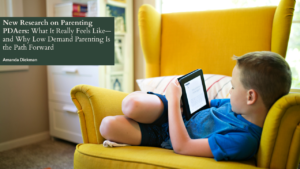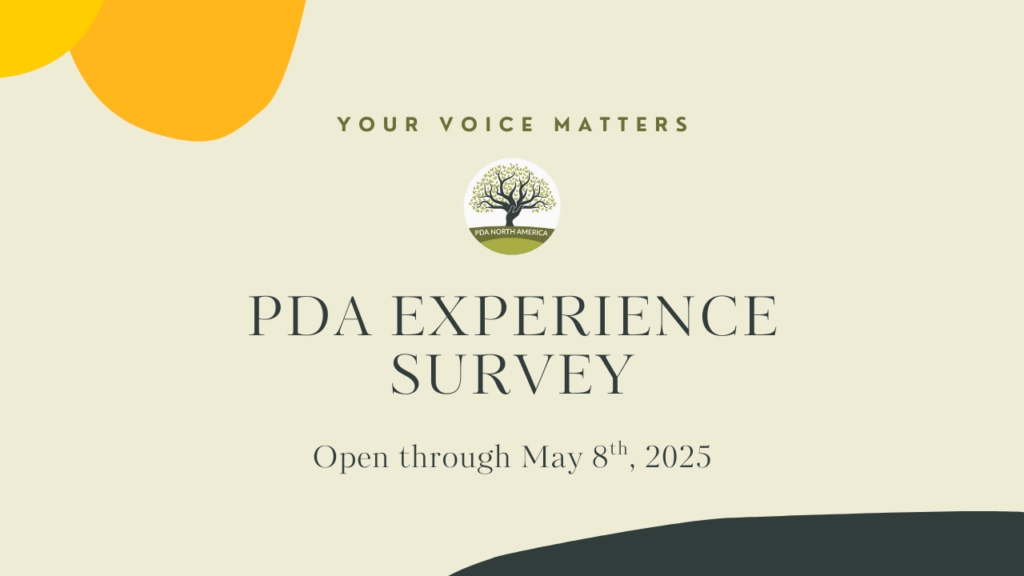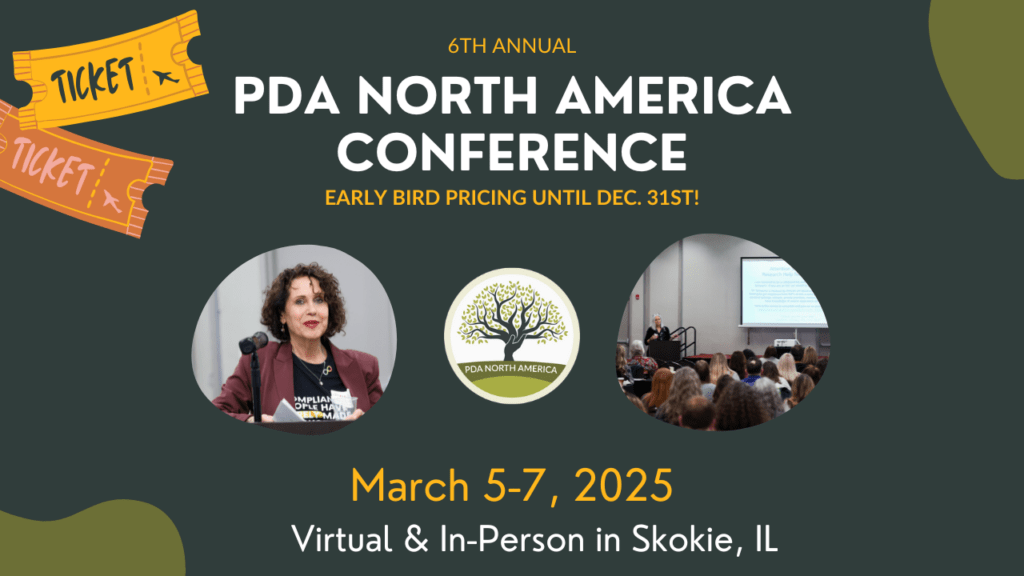by Sunita Theiss
I’ve heard from so many parents that parenting a PDA child often feels like trying to parent with a map that doesn’t match the terrain. So much of mainstream parenting advice is built on assumptions that just don’t hold true for PDA kids—or, for that matter, for many neurodivergent kids and parents. If you’ve found yourself feeling like nothing in the parenting books works for your child, you’re not alone. And you’re not failing.
The Limits of Conventional Parenting Approaches
A lot of traditional parenting wisdom assumes that children respond well to clear rules, consistent consequences, and structured routines. It also assumes that children fundamentally feel safe in their environment and relationships, and that they’re motivated to please caregivers.
But for PDA kids, the world often feels unpredictable and unsafe, and even well-intended structures can feel like unbearable demands. Conventional strategies that emphasize compliance, productivity, and self-regulation can trigger intense avoidance, making everyday interactions feel like battles.
These approaches also tend to be rooted in Western ideas of child development—ones that prioritize independence over interdependence and don’t always account for the complex realities of generational trauma, cultural values, and survival instincts that shape our parenting. And for parents who grew up in an environment where obedience was equated with love or safety, it makes sense that breaking away from conventional methods might feel unsettling.
Shifting from Control to Connection
Rather than focusing on getting your child to comply, it helps to shift the focus to nervous system regulation—both yours and theirs. Instead of forcing yourself to “stay calm” in the heat of the moment, try working with your nervous system rather than against it. What helps you feel more settled before things escalate? Maybe it’s deep breathing, moving your body, or simply giving yourself permission to step away for a moment when you need to.
For your child, reducing demands can be a game-changer. PDAers experience an intense need for autonomy, and demands—especially those that feel imposed rather than chosen—can trigger a fight, flight, or freeze response. Instead of presenting requests as non-negotiables, try inviting collaboration. Many PDA kids respond well to options, humor, or turning tasks into a shared activity rather than a directive.
Practical Strategies for Everyday Moments
- Reduce demands where possible. Look for ways to lower the demand level in daily interactions. Can a chore be done together instead of alone? Can you turn getting dressed into a game rather than a task?
- Prioritize regulation before engagement. Instead of trying to regulate in the moment, build in opportunities for both individual self-regulation and co-regulation during calmer times. Maybe this means taking some time for stretching or deep breathing by yourself, extra snuggles in the morning, playing music that helps set a peaceful tone, or getting outside together before tackling a challenging activity.
- Reframe independence as interdependence. Many parenting resources emphasize self-sufficiency, but PDAers thrive when they feel like they’re working with rather than against others. This might mean body-doubling (working alongside your child), parallel play, or simply being in the same space without forcing interaction or engagement.
- Adjust expectations—of yourself, too. You don’t have to do it perfectly. You don’t have to follow someone else’s model of what parenting should look like. Some days will be harder than others, and that’s okay. Giving yourself the same grace you give your child can be one of the most powerful shifts you make.
Finding What Works for your Family
If mainstream parenting advice isn’t working for you, it’s not because you’re doing it wrong—it’s because your child needs something different. And you’re the expert on your child. By centering connection, regulation, and collaboration over control and compliance, you can create a family dynamic that feels more sustainable, supportive, and safe for both you and your child. Parenting a PDAer isn’t about finding the perfect strategy—it’s about learning, adapting, and embracing the relationship you’re building together.
About Sunita: Sunita Theiss is an autistic + ADHD mom of neurodivergent kids. Multiple members of her family identify with PDA, and she completed the PDA North America Level 1 certificate in 2023. A child of Indian immigrants, Sunita was born and raised in Georgia. She is a poet and writer, and has had an extensive career in marketing and communications. She is currently in a season of downshift in her career to be more hands-on with her family and homeschool her children. Connect with her on Instagram, Substack, or in the PDA Georgia Facebook group.







